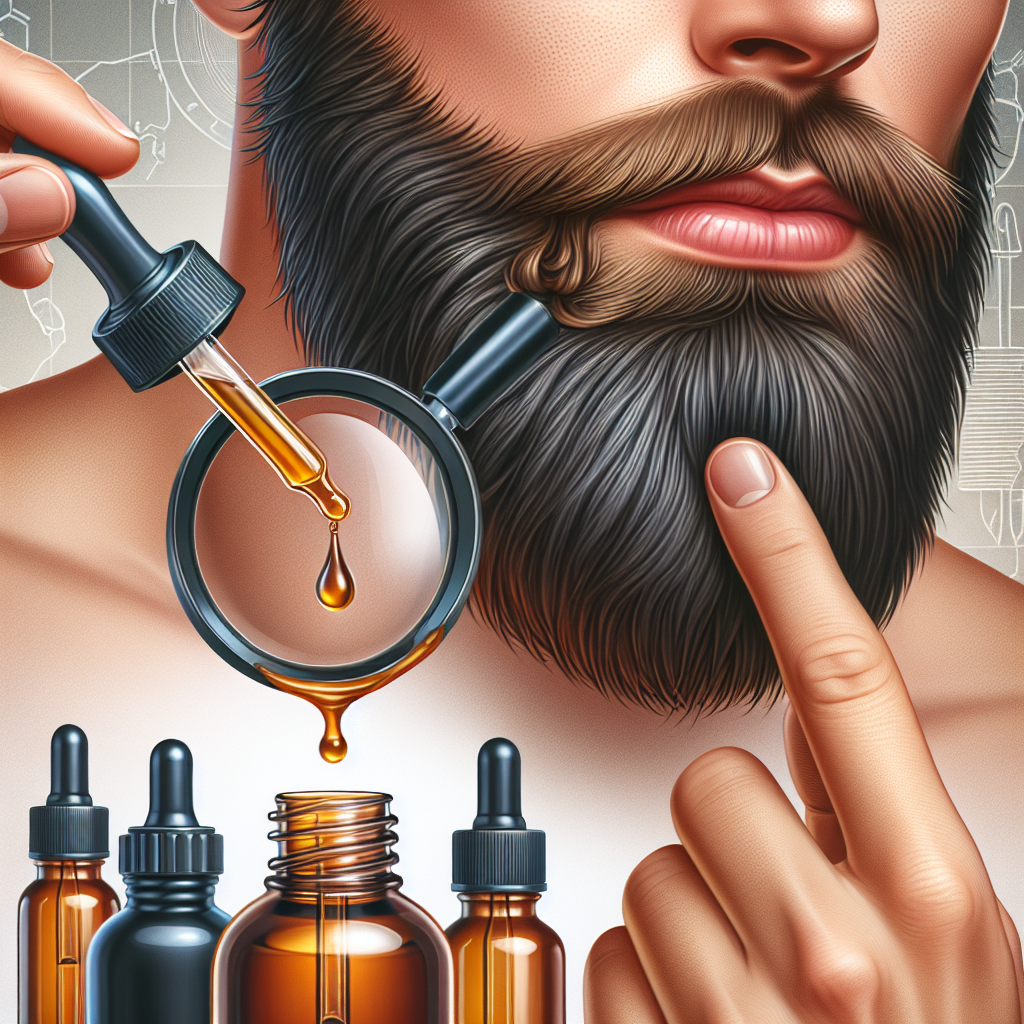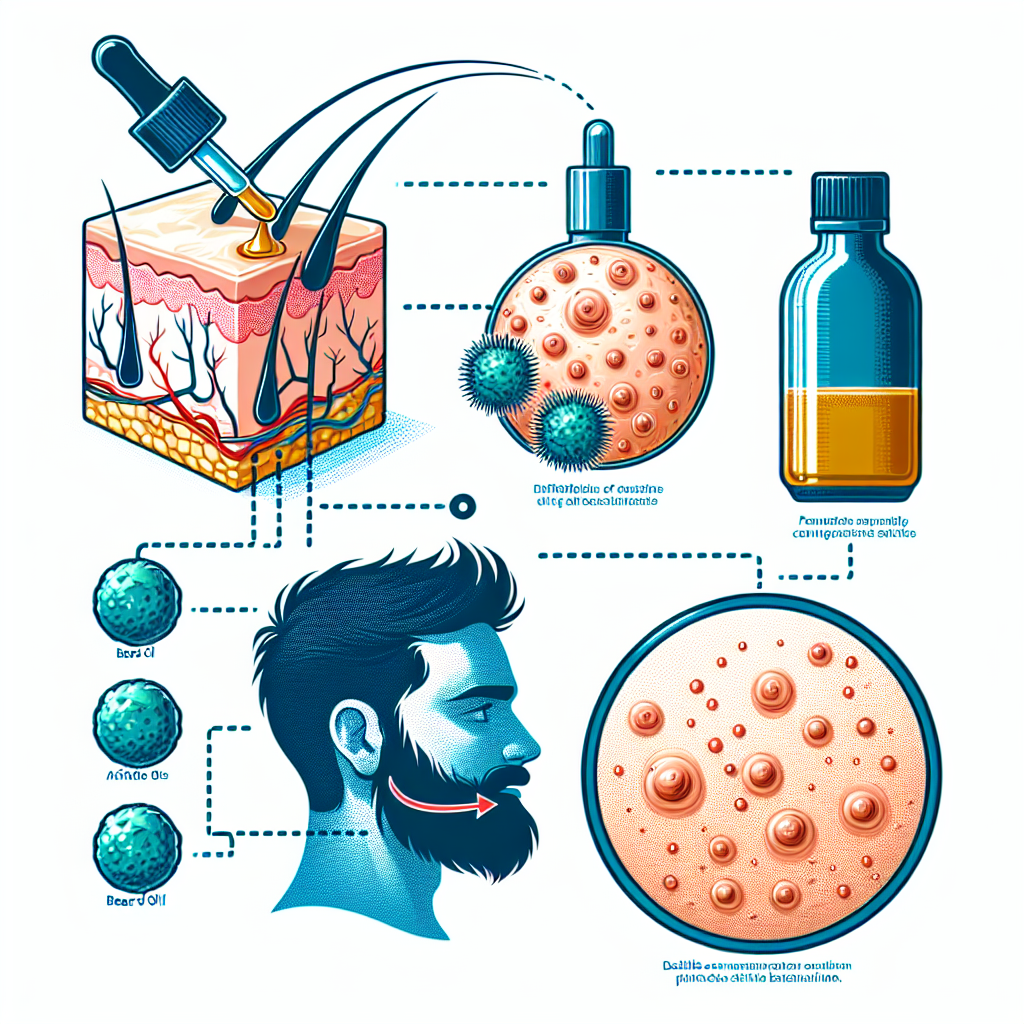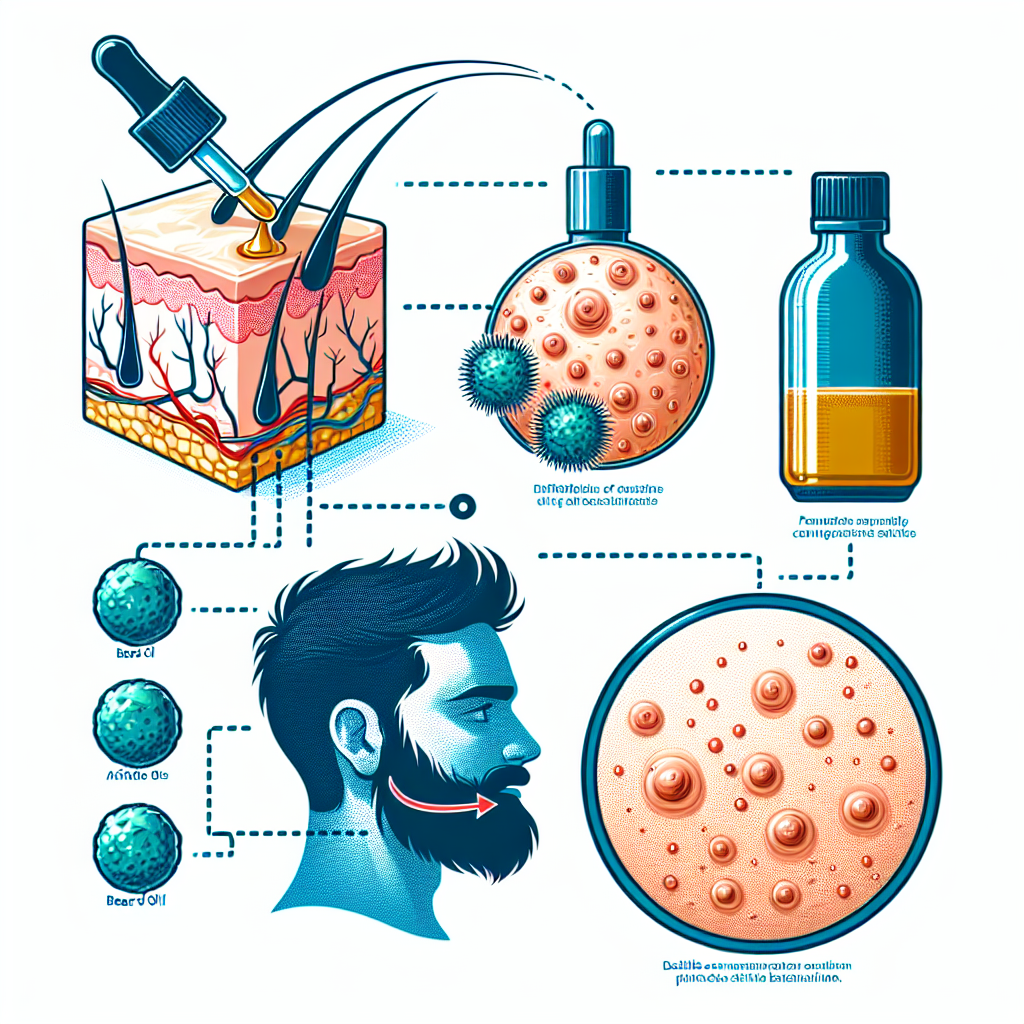In your pursuit of the perfect beard, you may have wondered about the potential consequences of using beard oil. Could it be the cause of those pesky breakouts? Well, fear not, dear beard enthusiast! In this article, we will explore whether beard oil can lead to breakouts and provide you with some helpful tips to keep your face clear and your beard looking its best. So, let’s put those worries to rest and discover the truth behind the relationship between beard oil and breakouts.
Can Beard Oil Cause Breakouts?
Understanding Beard Oil
Beard oil is a grooming product that is designed to moisturize and nourish the skin and hair follicles underneath the beard. It typically contains a blend of carrier oils, essential oils, and sometimes fragrances or synthetic additives. The purpose of beard oil is to hydrate the skin, soften the beard, reduce itchiness and irritation, and promote healthy beard growth.
Common Causes of Breakouts
Breakouts, also known as acne or pimples, can be caused by a variety of factors. Excessive sebum production, clogged pores, bacterial growth, hormonal imbalances, and irritation and inflammation are some of the most common causes. These factors can lead to the formation of comedones, which are the primary precursors to acne.

Can Beard Oil Lead to Breakouts?
There is ongoing debate among experts and individuals about whether beard oil can cause breakouts. While some individuals claim that using beard oil has led to acne breakouts on their skin, the scientific evidence on this topic is inconclusive. It is important to note that every person’s skin is unique, and what works for one individual may not work for another.
Factors Influencing Breakouts
Several factors can influence whether or not beard oil will lead to breakouts. These factors include the individual’s skin type, existing skin conditions, the quality of the beard oil being used, the frequency of application, hygiene practices, and diet and lifestyle factors. Understanding these factors can help determine the likelihood of experiencing breakouts while using beard oil.

Types of Beard Oil Ingredients
Beard oils typically contain carrier oils, essential oils, and sometimes fragrances or synthetic additives. Carrier oils, such as jojoba oil, argan oil, and coconut oil, provide the base for the beard oil and moisturize the skin and hair follicles. Essential oils, such as lavender oil or tea tree oil, can provide additional benefits like fragrance or anti-inflammatory properties. Fragrances and synthetic additives are often used to enhance the scent or texture of the beard oil.
Non-comedogenic Oils
Non-comedogenic oils are those that have a low likelihood of clogging the pores and causing breakouts. These oils are suitable for individuals with acne-prone or sensitive skin. Non-comedogenic oils are typically lighter in texture and are less likely to contribute to the formation of comedones. Examples of non-comedogenic oils that can be found in beard oils include argan oil, grapeseed oil, and hemp seed oil.
Comedogenic Oils
Comedogenic oils, on the other hand, have a higher likelihood of clogging the pores and potentially leading to breakouts. These oils are heavier in texture and can contribute to the formation of comedones. Examples of comedogenic oils that are sometimes used in beard oils include coconut oil, almond oil, and wheat germ oil. It is important to note that the comedogenic rating of an oil can vary from person to person, depending on their unique skin characteristics.
Personal Sensitivities
Personal sensitivities, such as allergies or sensitivities to specific ingredients, can also contribute to breakouts while using beard oil. It is important to read the ingredient list of the beard oil carefully and be aware of any known allergies or sensitivities. Patch testing the beard oil on a small area of skin before applying it to the entire beard can help identify any potential adverse reactions. If you have any concerns or experience persistent breakouts, it is recommended to consult a dermatologist or allergist for further guidance.
Proper Beard Oil Application
Proper beard oil application can help minimize the risk of breakouts. Start by cleansing the face and beard with a gentle cleanser to remove any dirt or debris. Apply a few drops of beard oil to your palm and rub your hands together to distribute the oil evenly. Massage the oil onto the skin beneath the beard and work it through the beard, ensuring full coverage. Use a beard comb or brush to evenly distribute the oil and style the beard if desired. Avoid using excessive amounts of beard oil, as this can lead to greasiness and potential pore-clogging.
Preventing Breakouts with Beard Oil
To prevent breakouts while using beard oil, consider the following tips:
- Opt for Non-comedogenic Beard Oils: Choose beard oils that contain non-comedogenic carrier oils, such as argan oil or grapeseed oil, to minimize the risk of clogged pores and breakouts.
- Avoid Fragrances and Synthetic Additives: Fragrances and synthetic additives can sometimes irritate the skin and lead to breakouts. Opt for unscented or naturally scented beard oils to minimize the risk.
- Maintain Good Hygiene Practices: Ensure regular cleansing of the beard and face to remove dirt, excess oil, and dead skin cells. This can help prevent the accumulation of bacteria and minimize the risk of breakouts.
- Address Underlying Skin Conditions: If you have existing skin conditions, such as acne or rosacea, it is important to address these conditions with appropriate skincare products or consult a dermatologist for guidance.
- Balance Oil Production through Diet and Lifestyle: A balanced diet and a healthy lifestyle can contribute to overall skin health. Proper hydration, regular exercise, and a diet rich in fruits, vegetables, and essential fatty acids can help maintain balanced oil production and minimize the risk of breakouts.
In conclusion, the potential for beard oil to cause breakouts varies depending on individual factors, the quality of the beard oil, and proper application techniques. While some individuals may experience breakouts while using beard oil, others may not. By understanding the ingredients, considering personal sensitivities, and taking steps to prevent breakouts, individuals can enjoy the benefits of beard oil without experiencing skin problems. As always, it is recommended to consult a dermatologist or skincare professional for personalized advice if you have any concerns or persistent breakouts.
